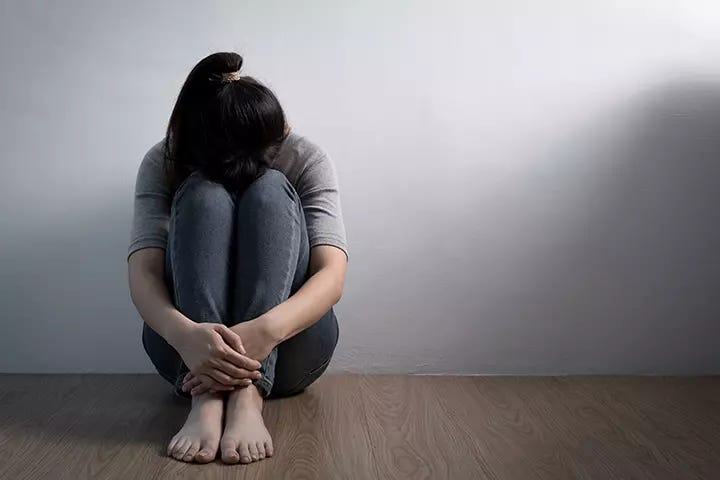I read an article by British writer Freya India today that broke my heart:
It’s a piece about the rampant fear that is driving so much of the rising generation, Gen Z, as well as their well-covered rises in mental health problems and what some see as lack of resiliency. She writes,
I’ve written a lot about my generation and fear. Our fear of love, and fear of life. But I’ve been getting the sense lately that there’s some ultimate fear underlying all this, running through everything. And I’m becoming convinced that it’s fear of abandonment.
For a start, many of us grew up in broken homes. Our parents are strangers to one another; our childhood a series of exchanges from one house to the next. No real home, no place to belong. By age 14, nearly half of first-born children in the UK no longer live with both their mother and father.
It’s a poignant piece on what happens when a generation has no model of committed love, when divorce becomes not only accepted but often celebrated, when abandonment of children becomes so commonplace that it no longer shocks us or leads people to feel shamed by their community.
I know a lot of you readers are pastors like me. I’m a millennial, in my early 30s, and this means I experienced childhood and adolescence without smartphones and for the most part without social media (excepting, of course, AOL instant messenger and MySpace, may they rest in peace), for which I thank God. It’s been amazing to me just how different the generation only 10-12 years younger than me seems—to have grown up under the Orwellian gaze of an iPhone selfie camera, and to experience middle school through an uploaded, shareable platform like Instagram, it just seems like as a society this was the worst possible experiment we could have run, with disastrous effects. Books like The Anxious Generation by Jonathan Haidt are making a compelling case that a phone-based childhood is a recipe for an adult generation that is not prepared for the challenges and suffering of human life.
But India’s essay hits on an a deeper wound, one that I suspect underlies the problems of our hauntingly digital world—it’s our collective abandonment of children:
Of course families have fallen apart in every generation. But even a few decades ago children from broken homes had communities, they had neighbourhoods. Now our families fall apart and there is nothing, nobody, to catch us. We live far from extended family. We are more estranged than ever.…
Plus, total abandonment of any sense that we belong to something bigger. Loss of faith—not just in religion, but in all social bonds. No sense that there’s anything binding us, that we even share the same values. Forget loving our neighbour, we can’t even make eye contact with them. Nothing holds us together anymore. We are alone.
And add to all that, so little sympathy. Ours is a culture choking on its own compassion yet offering next to none for children of divorce. We are the first generation to grow up without stigma around family breakdown, but near total normalisation of it. And when you normalise something, you stigmatise the reaction. So many marriages end; what did you expect? Your friends’ families are the same; what’s wrong with you? It’s just a contract anyway. Kids are resilient. All this tells us that abandonment is trivial. That if you feel deeply affected by it you might be the problem. And anyone who does try to articulate the pain is treated with such suspicion, accused of having some political agenda, rather than just being overcome with this feeling. This feeling of absolute abandonment.
The feeling we’re left with, God. How to describe it? It’s the feeling that nobody has our back. That we can’t trust anyone. That this world is terrifying and we are powerless, but if we attach to anything for support, we will be abandoned. I see it everywhere; it cuts to the core of this generation. Difficulty trusting people, hypersensitivity to criticism, low self-esteem, constant need for external validation—all are abandonment symptoms. And I’m not saying this explains everything, or we all feel this way, but that we underestimate how many young people are carrying this around. This feeling of being abandoned and fear of it happening again. Beneath what looks like the age of entitlement, below the culture of narcissism, this is the age of abandonment.
I read this piece, and thought, dear God, forgive us. It’s worth reading in full.
But I also thought, if this is how many parts of an entire generation is feeling, what an opportunity there is for the gospel to be proclaimed. What a moment, especially for us who have the privilege of preaching, for the message of unconditional love, of a God who will never abandon his creation, a Father defined by his unwillingness to break a promise, a covenant God.
And also, what an opportunity for the church to be the church, to be the sign of God’s “Never Stopping, Never Giving Up, Unbreaking, Always and Forever Love” as a community of faith, either in our marriages or in our singleness. Imagine if this generation can look within the church and see friendships and marriages and families defined by commitment, gentleness, humility, and perhaps above all, stability in such a world of chaos.
Gen Z is an extremely interesting, creative, and also wounded generation, but perhaps above all they seem to me hungry: hungry for something solid, something they can sink their teeth into, restless like St. Augustine, looking anywhere and everywhere in six-second segments for their true home. I pray that we who are committed to Jesus would bear witness to their hearts, pay utmost attention to their stories, and then with them model and teach Paul’s “more excellent way”, the way of committed love, a love that never gives up.
If you’d like to support my Substack financially, here’s a way to do it: click here to buy me a coffee!






Cameron, I’m not a pastor, and I’m a lot older (72), but I’ve spoken with enough folks to know that while Gen Z experience the problems that you’ve listed, many former church members of various ages are no longer attending traditional churches anymore, because there was no sense of real community. Forming a true faith community where everyone truly feels connected is going to require a much greater level of intentionality than is now commonly available. This is why I believe that one of the greatest priorities for the now officially convened GMC, is re-establishing the normalization of the Methodist bands and classes. And these should be multi-generational.